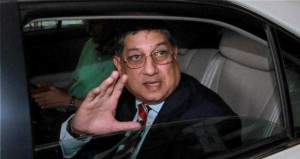The ICC Position Paper. What it really means
1The issue of the ICC Position Paper so far has been confusing at best. Until now details of the proposal have been sketchy, discussion around it has been careful, and couched in the language of politicians.
However, with the leaking of the paper, it has become apparent that there are actually some real issues to be concerned about. In short, this is a heist of power, a proposal to expand the domestic T20 leagues in each of these countries above the interests of International cricket, and in defiance of their duty to grow the game globally.
The situation is a lot more serious than it what had portrayed in the NZ media to date.
Just a few points
The idea that it is logical for distribution to be based on commercial contribution rather than need is counter-intuitive and just wrong if the goal is to establish a growing worldwide game. One of the prime objectives of any sporting body or business when attempting to become a truly global enterprise is to develop their emerging market or fan base, rather than investing in an already strong area. Manchester United did not get where they are now by investing in Lancashire football.
The whole purpose of Central Body funding is to develop the smaler / developing nations. When those nations are thrown the crumbs of a series against a Big 3 Nation they will enter those matches at a massive disadvantage because they have not had the investment or experience. Watch the gap grow.
Who needs more money from a cricket tour? Probably not the countries whose TV rights for bilateral Tours have the greatest value. For example if a Bangladesh tour of New Zealand or Zimbabwe is not profitable then there is every chance that will not happen either..
It is certainly not usual practice, as claimed, for participants who create the most revenue to receive the biggest dividend. The New York Yankees don’t receive a bigger slice of the MLB pie than the Colorado Rockies. They can make their own Broadcasting Rights deals but otherwise the share of revenue is equal. Teams in the EPL share the revenue; with parachute deals for those relegated. The worst-performed team in the NBA is offered the first draft pick ahead of the next season; almost the polar opposite of what the BBCI, the ECB and CA are proposing.
The “reassurance” to the Boards outside the top 3 that they are guaranteed to earn more in the next cycle than they have in the current one ignores the fact they are almost certain to lose more money from a re-shaped FTP (with India in particular picking and choosing who and when they play) than they will gain from ICC distributions.
Assurances from the ECB and CA (but not India) are to guarantee one tour per cycle. At present there would be a home and away tour in that period.
No consideration is given to the fact that over time, the rich Boards will get even stronger, undermining the competitiveness of future ICC Events and thus the value of rights in future cycles.
The linking of immunity from Test relegation for BCCI, ECB and CA is quite possibly unique in the world of professional sport. . To slip that rule into a section called “meritocracy”. is risible
The argument that promotion and relegation will “improve the standard and relevance of Test cricket” is a nonsense, not least because there is no attempt to create context at the top of the Test rankings, and because it’s impossible to have a credible promotion-relegation system without a regular home and away playing programme.
The distortion of the international calendar will also render the International Rankings even less credible than they are currently.
It is remarkable that a paper on the future of cricket can devote just one sentence to the game’s most commercially viable product: T20 – confirming the intention to hold a WT20 every four years. Yes, we noticed that bit.
What is going on with the treatment of South Afria? They are excluded from the patronising $1m per Board per annum payouts yet are not one ofr for the six Boards who are to receive it (try not to spend it all at once!), and b, the fact Cricket South Africa is excluded; they apparently aren’t one of The Big 3. That’ll teach them.
The control of the ICC by the big three is perhaps as worrying as anything. Not only are they given special status which guarantees them control of the new Executive Committee, they are allowed to appoint to that committee representatives who are “directors, officers or employees of those members”, who will undoubtedly bring to that committee a high degree of self-interest.
Due to the reduction in International cricket – we will see larger windows appear for Indian Premier League, BBL and whatever the English equivalent is these days.


[…] The IIC position paper. Probably the most serious blog of the year, as The Big Three undermined the international game, and everyone, one by one, got bribed into […]